
Related
Top stories




ESG & SustainabilityGovernment fossil fuel subsidies triple under Ramaphosa
Michael Cherry 41 minutes


More news















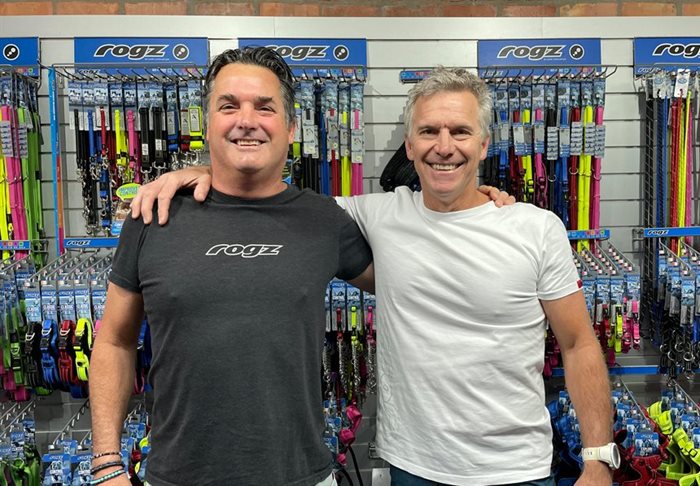
Cofounders Irené Raubenheimer and Paul Fuller launched Rogz in the mid-90s, as the ‘humanisation of pets’ trend was taking root globally. Consumers were prepared to spend more on pet accessories and their furry companions began wearing more human-style apparel and gear.
In South Africa however, the pet retail industry was less developed and remained rather conservative. “The pet industry wasn't very personalised or brand-conscious at the time,” Raubenheimer told Bizcommunity in an interview.
Accessories were made from rough, unfinished materials or leaned towards hardware (think leather straps and metal studs), and products were sold through the formal veterinary channel or the ‘mom and pop’ pet stores that existed locally.
Rogz burst onto the scene with gear that offered something different - bold, branded and brightly-coloured pet accessories made with alternative materials. Raubenheimer and Fuller attracted just as much attention as their products did by attending conferences and trade fairs in t-shirts and flip-flops among a sea of suits and ties.
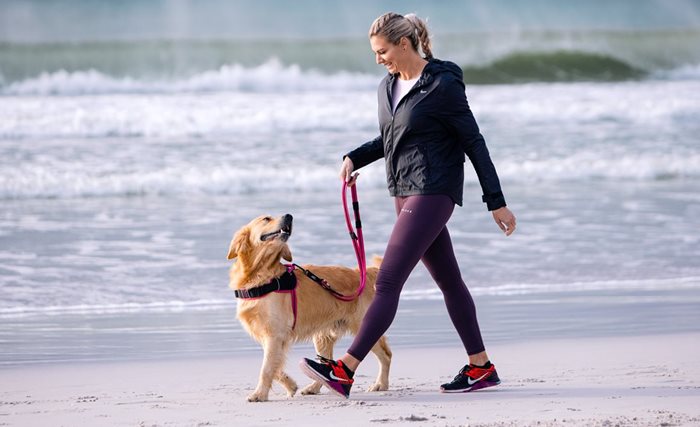
The founders, who are business partners, friends and brothers-in-law, fell into the pet industry by chance. Having met at university, Raubenheimer and Fuller left their respective fields of computer science and winemaking to work abroad on yachts for a few years. They returned home to South Africa in the early 90s and attempted a few failed business ventures before launching RatzStraps, a sports accessory brand focused on sunglass cords and watch straps.
Business took off, but one particularly dry spell led the entrepreneurs to pivot into dog collars and leads. Their pet business boomed, while demand for sports accessories dwindled, cementing the focus for the next era of the business and the official development of what we now know as Rogz.
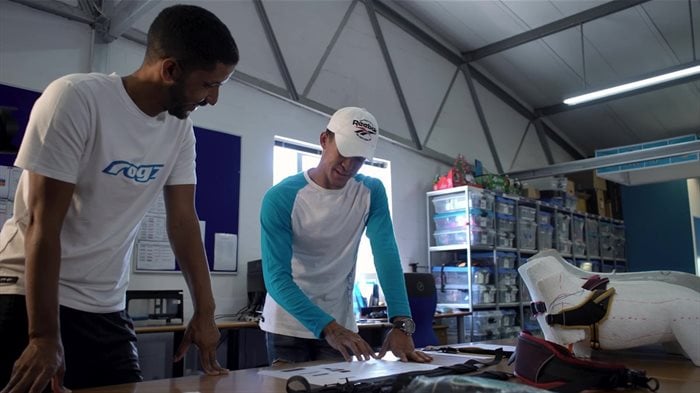
The venture began operating from Raubenheimer’s apartment in Table View, Cape Town, and today the company occupies a large head office in Montague Gardens with a warehouse, factory and new product development (NPD) division.
The success of Rogz transcends South African borders, with the brand winning numerous international awards in recognition of its influence in the pet industry. Notably, in 2021 it scooped the title of ‘Brand of the Year’ in the Animalis category at the World Branding Awards.
The company has grown its export business to 90 countries around the world and lists Australia, Holland and Canada among its priority markets outside of South Africa. Export sales now account for roughly 60% of the business.
Currently, at least 80% of Rogz products are manufactured locally - a point of pride for Raubenheimer and Fuller, who are fiercely patriotic.
Outsourcing some manufacturing to the Far East was an important part of the Rogz expansion journey, but since 2017 the company has been actively localising production in an effort to contribute more to the SA economy and boost job creation. It’s also helped Rogz distinguish itself in a global market that increasingly manufactured in the same spaces.
The Covid-19 pandemic, the supply-chain disruption that ensued, and the growing call to ‘buy local’ simply served to confirm to the founders that they had made the right decision to invest more in local production.
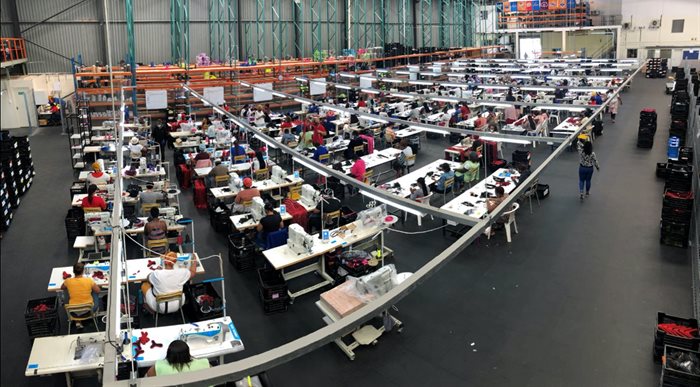
Rogz currently has around 250 permanent employees on the books, many of whom have been with the company for more than a decade.
“When we started selling internationally, we didn't say we were from Cape Town because way back then it was perceived as possibly ‘third-world’ production. Now we say upfront we're proudly made in South Africa, made in Cape Town,” said Fuller.
He added that despite the challenges that come with manufacturing locally, doing so is rewarding and Rogz is managing to cost-effectively produce a premium brand. “We compete well producing from Cape Town. We've got world-class factories. We've got world-class employees. Our teams are paid well, they’re efficient and we've invested in good machinery. We’re not creating a cheap manufacturing space.
“Some of the challenges we have are that the surrounding industry that supports us isn't necessarily there; the textile industry has pretty much collapsed in South Africa. That’s a big challenge. We have to import a lot of textiles as only certain textiles are available here in South Africa, whereas if you're producing in China, for example, you have a massive textile industry around you that supplies. But we find ways around that,” Fuller said.
While Rogz relies on distribution partners abroad, this function is performed in-house in South Africa, which has helped the company nurture close relationships with local retail partners, many of whom are independents.
As the specialty pet retail industry has hotted up over the years, large retail chains have taken note of the pet care category’s potential. Brands such as Poetry, Zara and Country Road have all introduced fashionable collections for dogs, while in SA’s competitive supermarket space, Shoprite Group launched its Petshop Science brand, rolling out specialty pet stores and a dedicated online pet store.
Commenting on this evolving retail landscape and the expansion of big chains into specialty pet care, Raubenheimer said, “We've watched these transitions in other markets and there's space for both. A lot of the independent pet stores have had to adapt over time to become more innovative - and it's exactly the same in every other industry.
“We want to position our brand in the specialty sector. If there's not an educated person who will communicate with the consumer about how our product works, then we probably don't belong there.”
Fuller agreed that there’s room in the market for both independent retailers and large corporate chains, but suggested a differentiated approach to supplying them.
“We need to support both, but we need to come up with alternative innovations for independents. We have about 1,000 independent accounts in South Africa, and those accounts are what helped us build our brand. We've got a broad range of products and a lot of the bigger groups can’t carry the niche market products that independent stores can. So we're trying to differentiate our offering between the two.”
With thorough testing forming part of the NPD process, Rogz has become a trusted brand that boasts scores of patented product innovations. While fashion-focused pet products dial up the cute factor and remain a core part of the Rogz product offering, the brand also differentiates itself through technical development of functional gear that stands up to the demands of the outdoors.
The latest example of this is the AirTech range of adventure gear for dogs. Launched late last year, AirTech incorporates technology and features from the gear used in kitesurfing and extreme sports into harnesses, leads, collars and belts that are durable, safe, ultra-lightweight, comfortable and noise-free.
The fabric used to manufacture the products is engineered in-house by Rogz in Cape Town, resulting in a textile with extra strength while ensuring the signature Rogz DNA is pulled through all elements of the design.
For outdoor enthusiasts Raubenheimer and Fuller, technical adventure gear is a natural lean. Raubenheimer said, “Paul and I come from yachting and active outdoor adventure sports backgrounds. We were always close to gear and equipment so when we started designing products it was a natural personal preference.”
He added, “We don't want to make the cheapest product and spiral to the bottom. We want to elevate its sophistication and value so that there's a barrier to entry for competitors trying to replicate what we do.”
Rogz is purposefully working to weave sustainable practices into production and operations, and is the first African company to have joined the Pet Sustainability Coalition, a not-for-profit organisation advancing environmental and social sustainability in the global pet industry.
“In South Africa and worldwide, people are taking responsibility for local sustainable manufacturing for the future,” said Fuller. “There’s more transparency and consumers vote with their wallets. There's a portion of the public that's going to vote for cheap because financially they don't have a choice or they may not care, but there's a discerning part of the public voting for socially responsible businesses.”
The company’s non-profit division, Rogz Academy, aims to empower local communities through education, youth development and nutrition, and is involved with numerous initiatives that advance these three goals.
Fuller leaned into his agricultural winemaking expertise to lead the development of urban gardens on the pavements outside Rogz factories in Montagu Gardens, to feed the families of employees and the surrounding community.
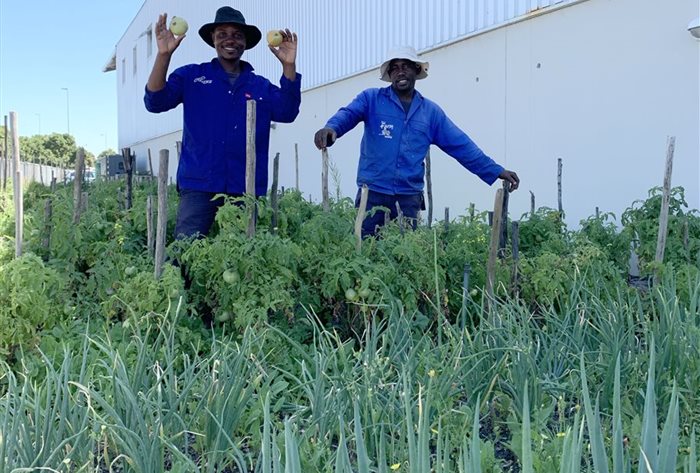
Meanwhile, the NPO’s youth development work aims to drive down youth unemployment by empowering young adults with mentorship, socio-economic support and work experience opportunities.
“When people ask me what I do for a living I tell them I sell dog collars. When we grew up at school it was all about becoming a doctor or an engineer, or a lawyer. But in South Africa, our youth need to be inspired to create something out of nothing,” Fuller said.
